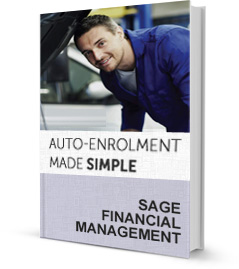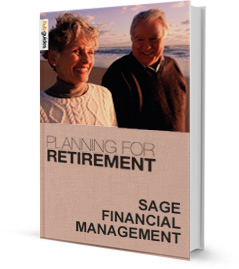Your information is 100% private and will never be sold or shared.
We offer a complete pension advice service; from simple personal pension to complex trust based schemes.
Pensions are, of course, designed to enable you to save sufficient money during your working life to provide an income stream for you to live comfortably after you have retired.
There are many different ‘tools’ used to save for retirement and the taxation and investment elements of pensions can appear baffling. We specialise in explaining, recommending and monitoring pensions for you. Below are the most common sources of pension to fund for your retirement.
Below are the most common sources of pension to fund for your retirement.
The Basic State Pension – for people who have paid sufficient National Insurance contributions while at work or have been credited with enough contributions.
Additional State Pension – referred to as the State Second Pension (S2P) but before 6 April 2002, it was known as the State Earnings Related Pension Scheme (SERPS). From 6 April 2002, S2P was reformed to provide a more generous additional State Pension for low and moderate earners, carers and people with a long term illness or disability and is based upon earnings on which standard rate Class 1 National Insurance contributions are paid or treated as having been paid. Additional State Pension is not available in respect of self employed income.
An Occupational Pension (through an employer pension scheme) – This could be a Final Salary Scheme (sometimes referred to as a Defined Benefit scheme) or a Money Purchase scheme (usually referred to as Defined Contribution). Pensions deriving from Final Salary schemes are usually based on your years of service and final salary multiplied by an accrual rate, commonly 60ths. The benefits from a Money Purchase scheme are based on the amount of contributions paid in and how well the investments in the scheme perform.
Personal Pensions Scheme (including Stakeholder schemes) – these are also Money Purchase schemes and are open to everyone and especially useful if you are self-employed, your employer doesn’t run a company scheme or just for topping up existing arrangements. From October 2012, the Government introduced reforms and all employers have to offer their employees, who meet certain criteria, automatic enrolment into a workplace pension. Employers can use the Government backed scheme, National Employment Savings Trust (NEST), or offer an alternative ‘Qualifying’ work place pension scheme such as a Group Personal Pension, providing it ‘ticks’ certain boxes. The process is being phased in between 2012 and 2018 depending on the head count of a firm. Employers are required to contribute a minimum of 3% of salary with Employees making a personal contribution of 4% with tax relief of 1% added on top, which again, is being phased in gradually.
State Pensions may not produce the same level of income that you will have been accustomed to whilst working. The full Basic State Pension is only £113.10 per week (2014/2015) for a single person (though you would be able to claim means-tested state benefits if that was your only income). It’s important to start thinking early about how best to build up an additional retirement fund. You’re never too young to start a pension – the longer you leave it the more you will have to pay in to build up a decent fund in later life.

Complementary Financial Advice Guides
Auto Enrolment Pensions
 Auto-enrolment aims to increase the level of retirement saving though the workplace and affects every employer in the UK. This guide tells you how all employers including micro businesses can prepare for compulsory pension auto-enrolment. Sign up now to receive information about our paid services and receive this bonus guide today.
Auto-enrolment aims to increase the level of retirement saving though the workplace and affects every employer in the UK. This guide tells you how all employers including micro businesses can prepare for compulsory pension auto-enrolment. Sign up now to receive information about our paid services and receive this bonus guide today.
Get The Guide
Guide to ISAs
2014-15
 Our complimentary guide to ISAs 2014-15. In this guide we discuss individual savings accounts and how to make the most of your annual tax year allowance. We cover questions such as 'What is an ISA?' and 'What should I look for in a cash ISA?' Sign up now to receive information about our paid services and receive this bonus guide today.
Our complimentary guide to ISAs 2014-15. In this guide we discuss individual savings accounts and how to make the most of your annual tax year allowance. We cover questions such as 'What is an ISA?' and 'What should I look for in a cash ISA?' Sign up now to receive information about our paid services and receive this bonus guide today.
Get The Guide
Planning For Retirement
 Despite all of the recent changes, pensions still represent one of the most tax-efficient ways for most people to save for retirement. The aim of our retirement guide, therefore, is to help you understand the options that are available to you. Sign up now to receive information about our paid services and receive this bonus guide today.
Despite all of the recent changes, pensions still represent one of the most tax-efficient ways for most people to save for retirement. The aim of our retirement guide, therefore, is to help you understand the options that are available to you. Sign up now to receive information about our paid services and receive this bonus guide today.
Get The Guide
Successful Investment
 Successful long-term investment is not just about buying low and selling high – although that is always a good principle to bear in mind. Go back to basics– markets may rise and fall but the rules of sensible investment remain constant. Sign up now to receive information about our paid services and receive this bonus guide today.
Successful long-term investment is not just about buying low and selling high – although that is always a good principle to bear in mind. Go back to basics– markets may rise and fall but the rules of sensible investment remain constant. Sign up now to receive information about our paid services and receive this bonus guide today.
Get The Guide
Testimonials
"We have used the services of Sage Financial Management for the past year and we have found them to be extremely professional in their approach. The advice and guidance that we receive is honest, professional and reliable. They are always ready to find the time to meet with you and explain matters in full, in a manner that is appropriate. I will have no doubt in recommending them to friends and family."
Dr Baki, Delta Care Limited, Preston"Sage Financial Management has certainly been very helpful to me and my company. With issues such investments and pension planning I have reaped a lot sound and impartial advice. The advisers are always flexible on meeting arrangements to suit my busy schedule, and advice is in a simple language so it does not take me too long to analyse."
I Ahmed, Eye Care Optical, Director, Nationwide"Sage Financial Management provides an effective service that is tailored to the individuals needs. The service is performed in a professional, no-pressure manner. I have no hesitation in recommending them."
W Yasin, Riley Moss Chartered Accountants, PrestonLatest Blog Posts
Auto Enrolment Workplace Pensions – Fast Setup
The auto-enrolment process is highly complex. Firms will need to implement a scheme by a particular date, called their “staging date” which is determined by their payroll size in 2012. To do this, you need to assess which employees will need to be enrolled in the scheme and this is based on employees’ ages, wages […]
Read MoreInheritance Tax Solutions
Inheritance Tax of £170 000 each was payable in the year 2012-13 by estates according to HM Revenue and Customs. This is a 15% increase to the previous 12 months. You work so hard throughout your lifetime the last thing you want is for your beneficiaries to pay a potential 40% tax charge on your […]
Read MoreSharia Compliant Pension and Investments
For a number of years we have offered clients the ability to invest in a Sharia compliant manner. In addition to a number of Sharia compliant funds already mentioned in previous posts such as HSBC Amanah, Aberdeen Global Islamic Equity for now have funds specifically for the emerging market. A lot of Analyst are indicating […]
Read More










